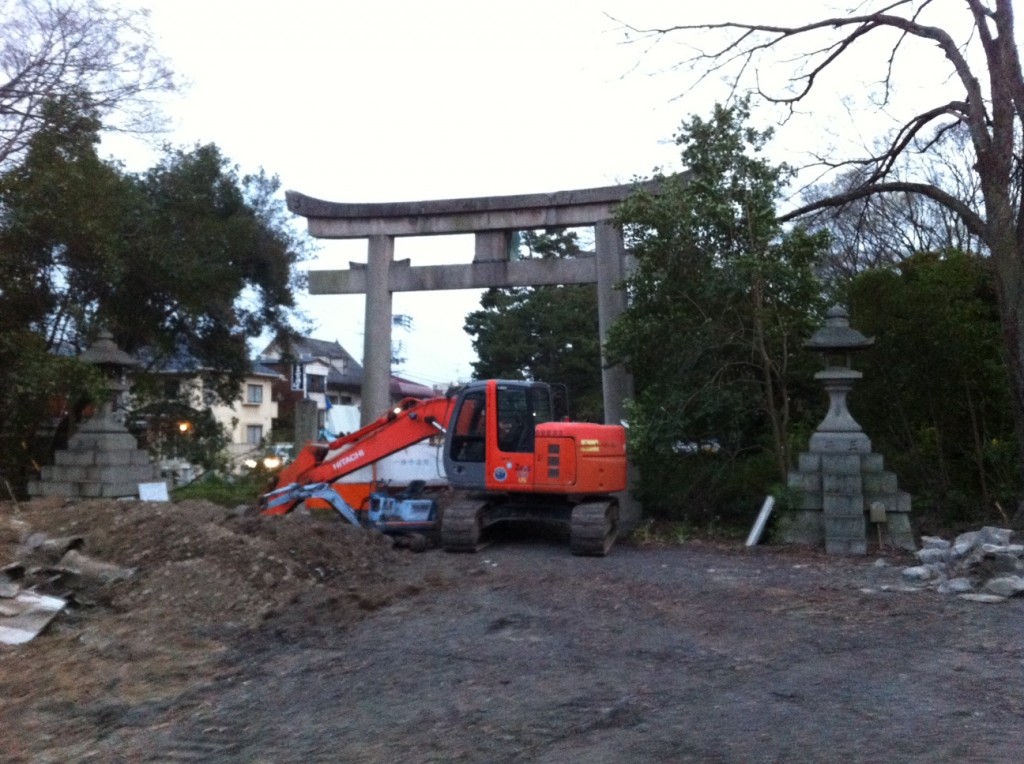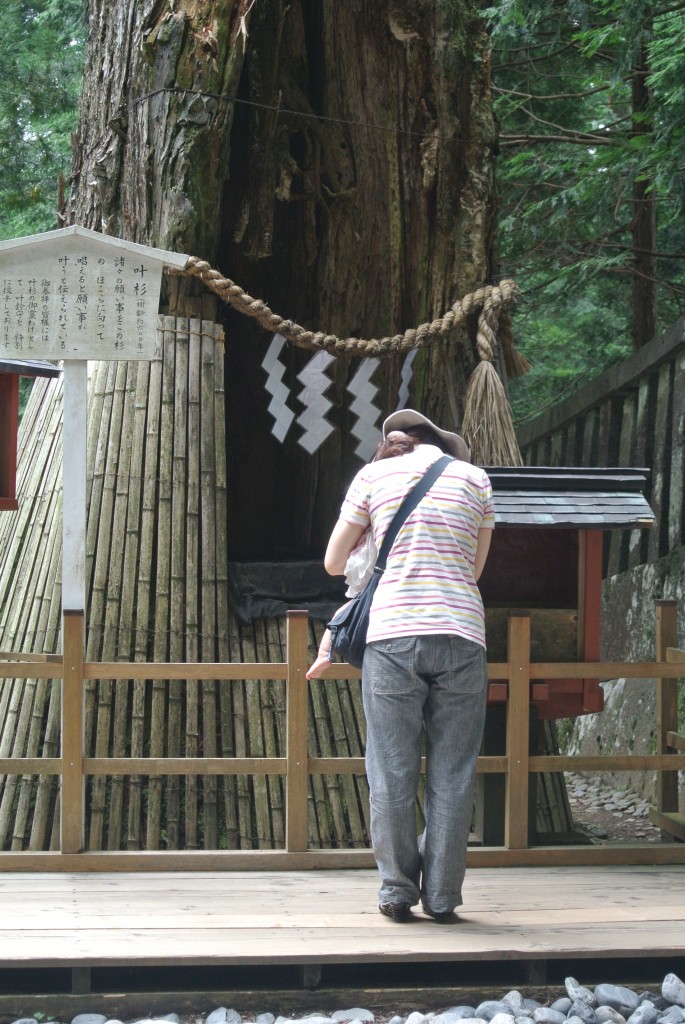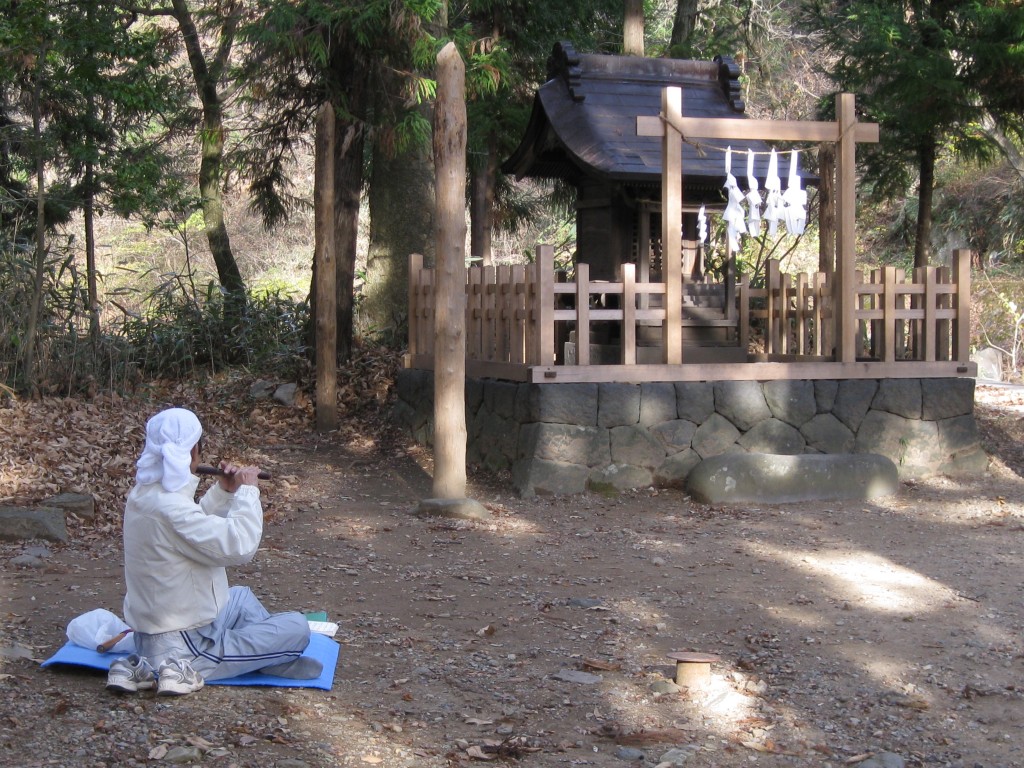
Can religion help prevent the destruction of the environment?
Green issues matter to Green Shinto, so it was with great interest that we noticed a forthcoming conference on the role of religion in an age of environmental crisis. The conference will take place next year in Washington and will look at the possibilities for religion being a positive force and providing leadership at a time of global warming. The term used to denote the age in which we live is the Anthropocene, which controversially signifies a period in which the structure of the world has been affected by human activity.
******************************************************
THE SIXTH INTERNATIONAL CONFERENCE ON RELIGION AND SPIRITUALITY IN SOCIETY
Washington D.C., USA, The Catholic University of America, 23-24 March 2016
“Religion in the Age of the Anthropocene: Towards a Common Cause?”

Can sacralisation of the natural world change attitudes to the environment, or simply towards the object in question?
A new framework has been presented in recent years to periodize and interpret the effects of human life on the natural environment: the age of the ‘Anthropocene.’ By this definition, we are now in an era when human activities have become a key macro-determinant of the destiny of the ecosystems of Earth.
The natural environment presents itself as a ground for life and a gift of life in all communities of faith and spiritual meaning. In the ‘age of the Anthropocene,’ how might faith (and explicitly non-faith) communities productively engage in these critical discussions?
Looking backward: could this be an opportunity for productive dialogues between principles of science, economics, and religion? Looking forward: in what ways might faith communities and other communities of spiritual meaning set agendas for personal and community action? What principles of stewardship, compassion, or mutual obligation might they offer? How might they provide leadership on issues of the environment, ecological sustainably, and climate change?
Could addressing these concerns also offer a basis for productive inter-faith dialogue, a locus for the development of unified moral voice across differing belief systems? Could the age of the Anthropocene, as a focal interpretive mechanism for understanding the intersection of human action, science, and faith, become a site for joining into a ‘common cause’ and a place to share imaginations for the future of human development?
Not only might such an agenda have implications for our relations in the natural environment, but also such considerations of the future might prompt us to address related questions of inequality, poverty, and human suffering.
The 2016 meeting will feature a special focus on this provocative subject. We welcome open debate, discourse, and research from participants that center on this special topic, as well as any other themes or issues relevant to religion and spirituality in society.
CONFERENCE THEMES:
Proposals for paper presentations, workshops, focused discussions or colloquia are invited that address the broader themes listed below. In addition to the special focus, paper presentations will be grouped into one of the following categories for presentation at the conference:
Theme 1: Religious Foundations
Theme 2: Religious Community and Socialization Theme 3: Religious Commonalities and Differences
Theme 3: Religious Commonalities and Differences
Theme 4: The Politics of Religion
Theme 5: Religion in the Age of the Anthropocene: Towards a Common Cause?
Proposals for in-person presentations should be submitted by 23 FEBRUARY 2016 (title and short abstract). Proposals submitted after this day will be accommodated in non-themed sessions at the conference or are eligible for community membership registrations (no attendance to the conference is required with community membership presentations).
For more information on the conference including confirmed plenary speakers as well as details on submitting your proposal and registering for the conference, visit: www.ReligionInSociety.com/DC-2016

Can spiritual practice provide a focus for environmental concerns?

Hi John, It’s illuminating to see the description of the current age as the Anthropocene in this context. The term has been used for some time in the environmental science/ conservation biology community. When I was recently preparing for a presentation on environmental rehabilitation I learnt that there is an International Working Group developing a case for making the Anthropocene an official geological epoch. That means humans would be considered a geological force rivalling the impact of natural processes such as continental drift (the cause of many earthquakes and volcanoes) and the ice ages. It’s a sobering and timely thought.
This sounds great! Will Green Shinto be submitting a proposal?
I’m not sure at this stage, Megan, but I’m happy to report that a Green Shinto reader is putting together a long article on the subject…
Fantastic! :)